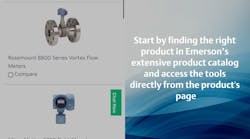Yesterday we published the first of a series of posts on Rockwell Automation’s “Manufacturing Perspectives” press event at its 2012 Automation Fair in Philadelphia (“‘Manufacturing Perspectives’ — Keys to Success”). Here is the second post in that series, highlighting a presentation by a representative from Ford Motor Co. about how the company is working with Rockwell to add flexibility to its manufacturing process.
Flexible Manufacturing
Peter J. Daenen, a representative with Ford Motor Company’s South America Operation, was on hand at the Perspectives event to provide a feel for how Rockwell’s technologies are benefiting real-world applications. He said Ford is working with Rockwell to enable its body shops, paint shops, and final assembly for flexible manufacturing. More specifically, he said Ford is in the process of transitioning its manufacturing lines worldwide from asset-intensive tooling systems to lighter-duty flexible systems that will allow it to run six or seven vehicle derivatives off of a single production line.
According to Daenen, 55 percent of Ford’s global operations had flexible body shops in 2011, with the ratio to increase to 65 percent by the end of 2012. He said as Ford continues to standardize how it builds vehicles, efficiency will improve and costs will fall.
Daenen said Ford has transformed its manufacturing process in recent years by focusing on the following initiatives:
• Globalization of its product portfolio;
• Establishing global manufacturing standards and processes;
• Tightly integrated design and manufacturing philosophies;
• Tightly integrated manufacturing supply chains;
• Highly flexible and adaptable manufacturing systems; and
• Tightly integrated manufacturing IT systems.

